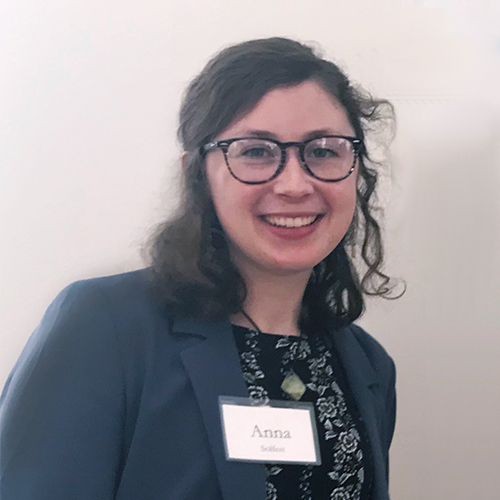Undergraduate research
You don't have to wait until graduate school to work on research.
Research is driven by curiosity. In CEHD, research takes many forms, from collecting observational data in an on-campus lab to conducting interviews at a youth organization. Learn about more reasons to participate in research on the Office of Undergraduate Research website.
Consider forming a team to compete in the World's Challenge Challenge, a competition to solve a pressing global problem held at Western University in London, Ontario. CEHD is a partner with Western University and sent a team from the U of M to the 2019 competition. The team included CEHD student Anna Solfest, kinesiology, Allison Berry, College of Biological Sciences, and Allison Trask, School of Nursing. Learn more about their project.

Solfest participated in the The World’s Challenge Challenge, which hosts more than 30 teams from colleges and universities around the world to present their unique ideas and solutions to a panel of academic and community leaders.
We are so grateful to have received so much support from our professors and mentors.
Anna Solfest, '19
Kinesiology
Why do research?
As a student at a top research university, we want you to use the knowledge you’re learning in your classes to make a difference. Research experiences help you develop your professional communication and critical thinking skills and impress potential employers and graduate schools. Doing research in CEHD connects you to what’s happening in the world right now, in areas from educational equity to concussion prevention in sports to children’s mental health.
Help along the way
Prior experience is not a prerequisite for working on a research project in CEHD. You will receive training and guidance from faculty, graduate students and others on the research team.
Next steps
- Find a subject that interests you. Reflect on the courses and readings you’ve enjoyed in your classes. What sparked your curiosity? Some of these interests may closely match your major and others may not. What’s most important is that you’re eager to learn more.
- Visit the McNair scholars website for profiles of undergraduate students who have conducted research with faculty mentors, and determine if you are eligible to apply. McNair scholars receive a stipend to conduct research.
- Ask your major advisor about helping you connect with faculty who are doing research in your area of interest.
Opportunities
- Participate in the Undergraduate Research Opportunities Program (UROP) and receive a stipend to conduct research.
- Participate in the Multicultural Summer Research Opportunities Program and receive a stipend to conduct research.
- Connect with your major advisor about directed study research opportunities and how to receive academic credit for doing research.
- Attend CEHD research day in the spring to get a sense of the research going on in CEHD.